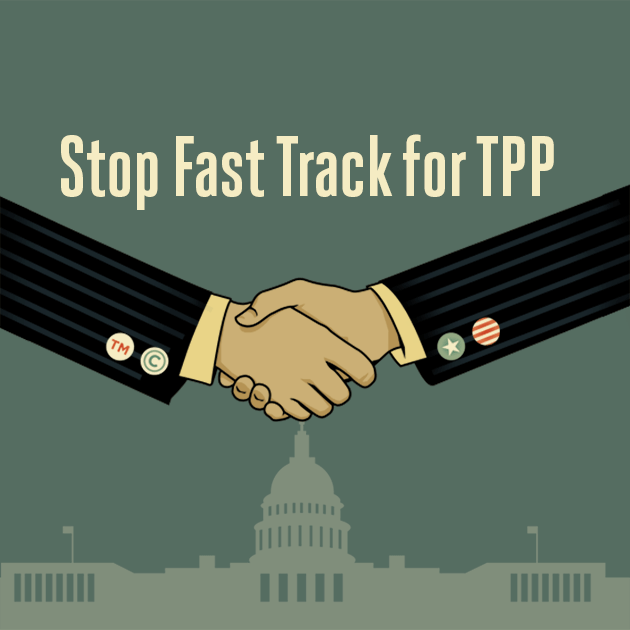EFF: White House messaging around the TPP is just backwards
The TPP will be good for the Internet. If by "good for the Internet" you mean "will make the Internet more censored, expensive, and policed." Article by Maira Sutton for EFF Sen. Ron Wyden and Sen. Orrin Hatch are now in a stand-off over a bill that would put secretive trade deals like the Trans-Pacific Partnership (TPP) agreement on the Fast Track to passage through Congress. The White House meanwhile, has intensified their propaganda campaign, going so far as to mislead the public about how trade deals—like the TPP and its counterpart, the Transatlantic Trade and Investment Partnership (TTIP)—will affect the Internet and users' rights. They are creating videos, writing several blog posts, and then this week, even sent out a letter from an "online small business owner" to everyone on the White House's massive email list, to further misinform the public about Fast Track.
The TPP will be good for the Internet. If by "good for the Internet" you mean "will make the Internet more censored, expensive, and policed."
Article by Maira Sutton for EFF
Sen. Ron Wyden and Sen. Orrin Hatch are now in a stand-off over a bill that would put secretive trade deals like the Trans-Pacific Partnership (TPP) agreement on the Fast Track to passage through Congress. The White House meanwhile, has intensified their propaganda campaign, going so far as to mislead the public about how trade deals—like the TPP and its counterpart, the Transatlantic Trade and Investment Partnership (TTIP)—will affect the Internet and users' rights. They are creating videos, writing several blog posts, and then this week, even sent out a letter from an "online small business owner" to everyone on the White House's massive email list, to further misinform the public about Fast Track.
In a blog post published this week, the White House flat out uses doublespeak to tout the benefits of the TPP, even going so far as to claim that without these new trade agreements, "there would be no rules protecting American invention, artistic creativity, and research". That is pure bogus, much like the other lies the White House has been recently saying about its trade policies. Let's look at the four main myths they have been saying to sell lawmakers and the public on Fast Track for the TPP.
Myth #1: TPP Is Good for the Internet
First, there are the claims that this agreement will create "stronger protections of a free and open Internet". As we know from previous leaks of the TPP's Intellectual Property chapter, the complete opposite is true. Most of all, the TPP's ISP liability provisions could create greater incentives for Internet and content providers to block and filter content, or even monitor their users in the name of copyright enforcement. What they believe are efforts toward protecting the future of the Internet are provisions they're advocating for in this and other secret agreements on the "free flow of information". In short, these are policies aimed at subverting data localization laws.
- Read more at EFF


 Take action now!
Take action now!
 Sign up to be in the loop
Sign up to be in the loop
 Donate to support our work
Donate to support our work